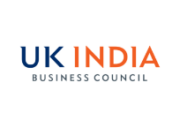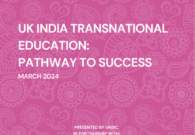More needs to be done on ease of doing business: UKIBC COO Kevin McCole
In an interview with Subhayan Chakrabo from the Business Standard, UK-India Business Council COO Kevin McCole talks about ease of doing business for British companies already operating in India

As Britain is all set to leave the European Union, its ministers as well as industry bodies are visiting India multiple times to set the stage for a post-Brexit trade partnership. In New Delhi to strengthen that narrative, UK India Business Council (UKIBC) COO Kevin McCole tells Subhayan Chakraborty in an interview that Britain continues to have among the largest investment presence in India but taxation and regulatory hurdles need to come down further to enable more FDI. Edited Excerpts:
What is the opinion of British companies who are already operating in India with regards to ease of doing business?
Some changes have obviously happened on the ground but they feel more needs to be done. We do an annual ease of doing business survey in November and the 2017 report shows that over the past three years, more UK businesses are feeling positive about the ease of doing business in India, generally. But, there are three issues – taxation, regulatory complexity and corruption. However, with regards to corruption, in 2017, the number of respondents who said it is a serious issue has gone down to 35 per cent.
But taxation and regulatory issues persist?
Taxation is a real issue because the presence of retrospective taxation makes new British investors think twice before investing. The other issue is a more recent one. It is the introduction of higher tariffs on a whole range of items during the last national budget. Now, we understand that the driving motivation behind this was to make in India and to make Indian companies more competitive against Chinese companies. But the unintended consequence is that UK companies – manufacturers – who want to invest in India cannot as they would have to import parts, which is a segment of the global supply chain. They can’t set up a factory and have a local supply chain from day one. You develop that over a number of years. These companies are now saying this makes the economic of investing here very different. But other aspects of ease of doing business are optimistic.
These are in which areas?
The availability of land is not an issue now for most investors. Some need factories and some need land but they generally get a good response because the state governments are keen on making investments happen. Then, UK businesses in India employ 8,00,000 people and therefore, the labour laws matter to them. There was some encouragement in the last Budget. The relaxation in labour laws in some sectors such as textiles were welcome. Contract working is a step in the right direction.
What is the kind of a policy push we can expect between both countries with regards to trade and investments after Brexit is completed?
The UK leaves the EU on March 2019 and then there’s a transitional period till December 31, 2020. So, the UK isn’t able to sign any new trade agreements until it leaves the EU, but we feel any business that is looking for an opportunity should not wait for the free trade agreement to be signed because there’s lots of business to be done even now. UK is already the number 1 G-20 investor in India over the last 20 years. And, India has been among the top four investors in the UK over the past 10 years. Trade had slowed down between both nations as part of the global slowdown but but then went up again.
The UK is India’s 6th largest export destination and exports had fallen continuously for 3 years until recovering last financial year. The same was true for British exports. Is it time to consciously change the export basket ?
Both countries can do more to help their exporters in two ways, and they are happening right now. One is to remove non-tariff barriers. A trade deal will look at tariffs and standards. Then, both governments have also established a joint trade review to identify potential high growth export areas. UKIBC has played a very central role in that. We have initially identified three priority sectors – Food and drinks, Healthcare and pharmaceuticals and ICTs. These are 3 areas where both countries have a lot of export as well as import potential. Officials from both countries are now looking at the issues that are stopping more trade in each of these sectors. Then, our job at UKIBC is to identify those issues, talk to businesses as to how to remove them and provide input to both governments to ease regulations in these sectors.







